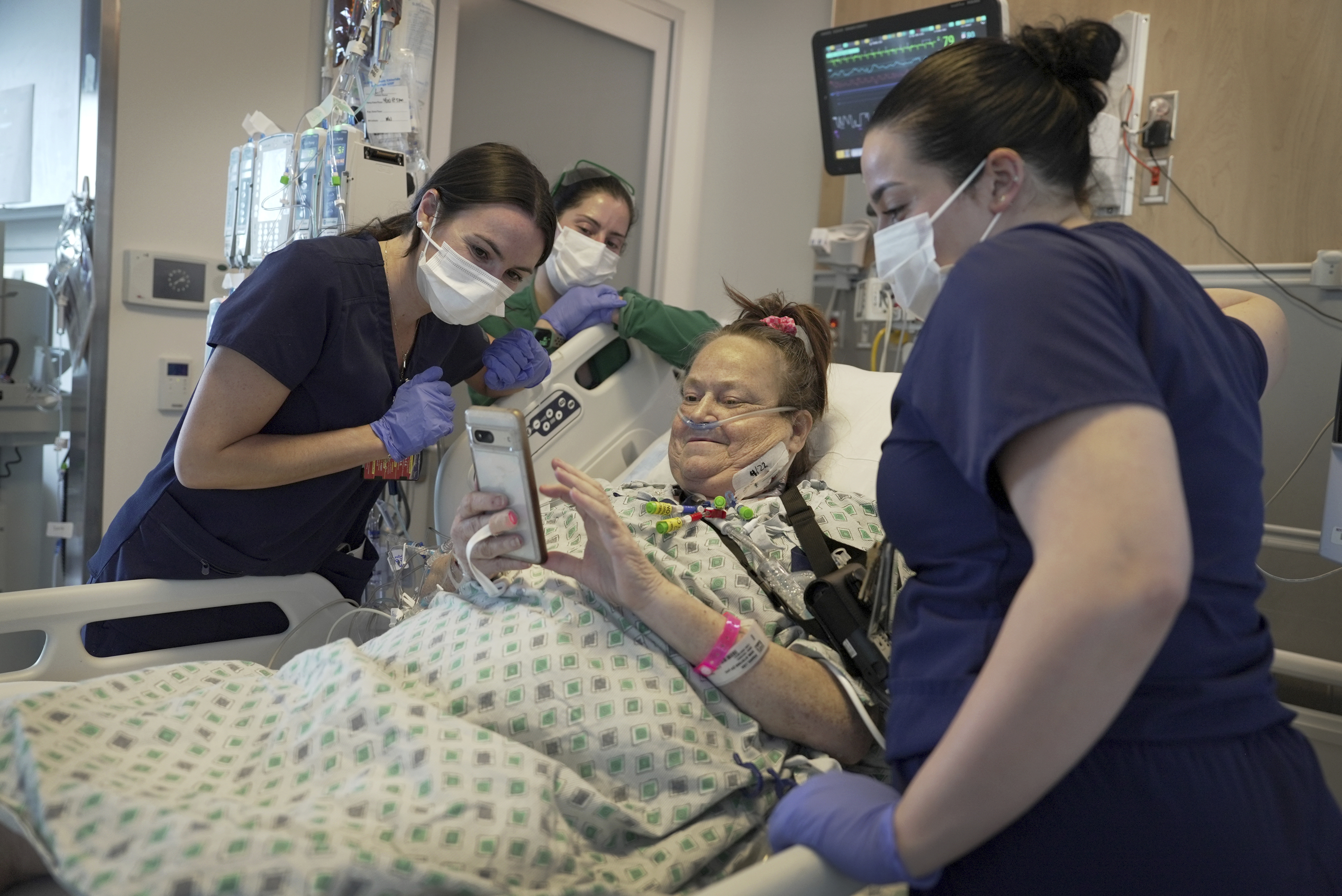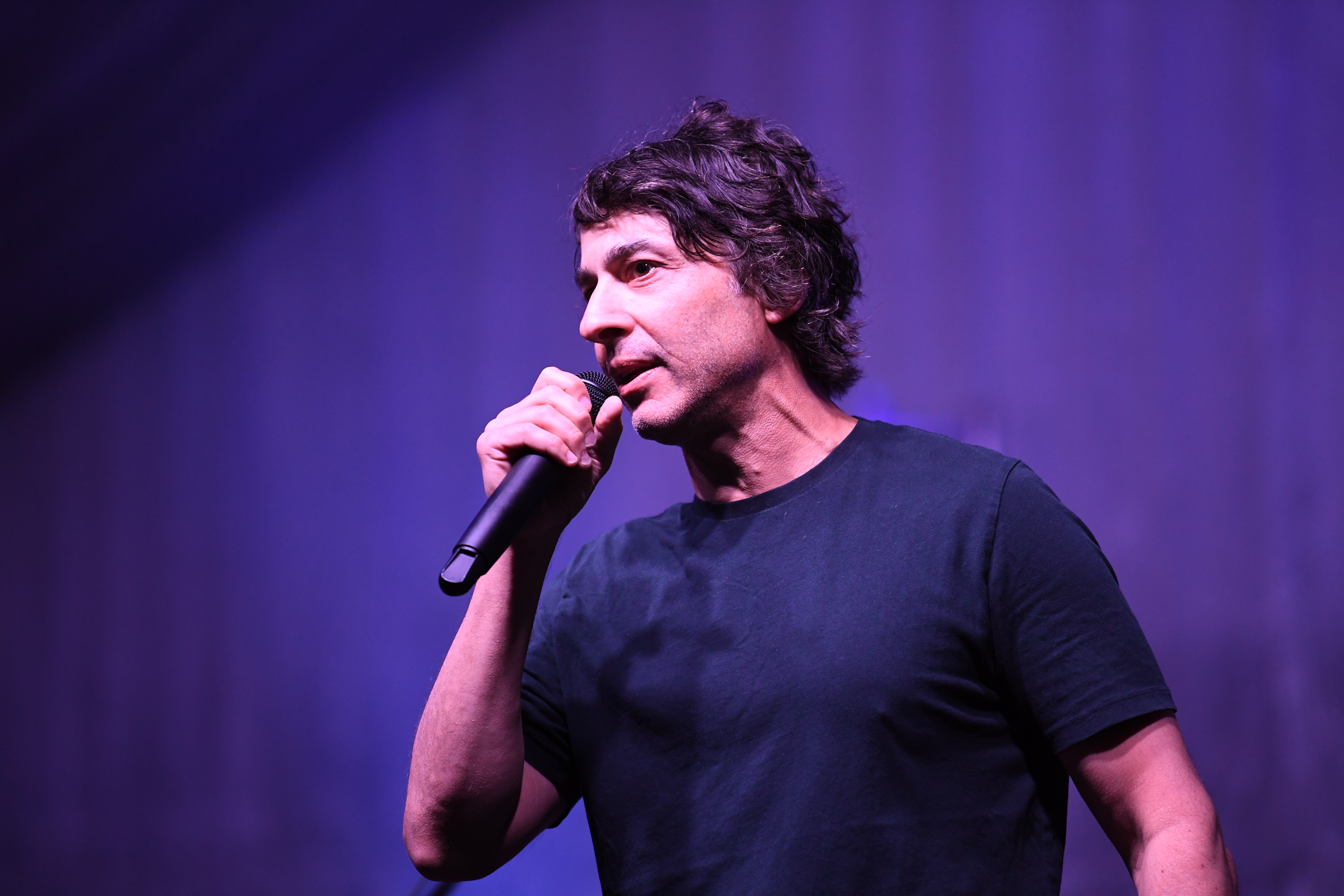Silent in his public comments for five-and-a-half years, Rod Blagojevich has no apologies to offer.
After all, the former Illinois governor still insists he did nothing wrong — and that he will prove it.
Watch Part 1 of NBC 5's exclusive interview with Rod Blagojevich
"The rule of law is not a lump of clay to be put into the hands of prosecutors, to be shaped by them any way they want, to ensure convictions,” Blagojevich told NBC 5, breaking his silence for the first time since entering prison. "The law is the law, and the law is what the Supreme Court says it is."
The Supreme Court is where Blagojevich is about to take a last stand.
Blagojevich was relaxed, freewheeling and at times even funny over two hours of conversations with NBC 5. The former governor spoke of his family and his desire to set the record straight, once and for all.
"What sustains me during this very difficult long hard trial is the love I have for my children and my wife Patti," he said. "My kids can see from both of their parents that when adversity enters their life, when your calamity comes on like a whirlwind, and just about everything’s been taken from you, that you don’t quit---you keep going and you draw from the hardest suffering the inspiration to carry on."
The former governor’s 14-year sentence came as the result of two criminal trials, two appeals and one abortive trip to the Supreme Court. Federal prosecutors insisted at that time that the venue was inappropriate, because Blagojevich still had to be re-sentenced in the District Court, and the high court did not take his case.
Out of all of those, he did manage to get five counts dropped from his convictions in the 7th Circuit Court of Appeals. But when re-sentencing finally happened, his 14-year term was not shortened.
U.S. & World
News from around the country and around the globe
Now he is preparing a second trip to the nation’s highest court, insisting that everyone up to this point has gotten it wrong.
“I believe, because of the practical considerations, because of the fact that the law is what it is, by the Supreme Court being the highest court in the land and what they say is the law, that sooner or later what happened to me has to be corrected,” he said.
Blagojevich is hoping the Supreme Court will listen as he essentially asks them to use his case to clarify when a politician steps over the line in fundraising because he insists he always stayed on the right side of that line and those who prosecuted his case got it wrong.
“They not only didn’t follow what the Supreme Court says was the law, they actually followed what the Supreme Court said was not the law,” he said. “Now I’m fighting obviously for my vindication for, you know, my freedom, for a future, for what I believe is right. But I’m also fighting for the rule of law.”
Specifically, he points to the landmark court case McCormick vs. the United States. That case said political fundraising crosses the line when a public official makes an explicit promise to perform an official act in exchange for a campaign contribution.
"By lowering that standard and saying that if an elected official seeks a campaign contribution from someone who may have benefitted by his or her administration, then that’s a crime?" he asks. "Then every former president that’s still alive is coming to prison, every governor that asks for campaign contributions, every mayor, every congressman, every senator. Because every single day they raise campaign contributions from people in and around the halls of government who do things."
The government argues it's not that simple.
Prosecutors have long argued that Blagojevich did make clear to certain donors what he wanted them to do--if they wanted to see key projects go forward. Essentially, they argue, there were explicit promises, ala McCormick, communicated in an implied way. But Blagojevich and his lawyers insist that was never the case.
"The law is very clear. The only thing you must not do, you cannot make a specific promise," he said. "I never did. The government listened to all the tapes. They know I never did. They don’t even allege that I ever did. But in order to convict me, they moved the line and essentially convicted me on jury instructions that were nearly identical to what the highest court in the land, the Supreme Court, said was not the law!"
When he agreed to the interviews with NBC 5, Blagojevich imposed no restrictions but said he wanted to talk about the case. And he wanted to talk about every aspect.
Take the allegations that he had attempted to shake down racetrack owner John Johnston for campaign contributions, in exchange for his signature on a bill favorable to the racing industry.
“I had that bill for nine days,” he said. “The legislature just passed that bill a week or two before, and they were all raising money from those same horse racing guys at the time they were actually voting on the bill.”
Prosecutors charged that undercover recordings made clear that Blagojevich was prepared to sit on the racing bill unless Johnston delivered. He insists that was not the case.
“They sent me to prison because I did nothing one way or the other on that bill after having it for nine days,” he says. “The idea that they would hold me accountable when I haven’t done anything one way or the other on a bill, having it for nine days and I have fifty one more days to act on it, to me shows how these are non-existent crimes.”
Then there were the allegations that Blagojevich was looking favorably at the prospect of giving the Barack Obama Senate seat to Jesse Jackson Jr., in exchange for a promise of over $1 million in campaign contributions from Jackson supporters. One key phone call involved a conversation between Blagojevich and his brother, who was working as his chief fundraiser. It was during that conversation that Blagojevich uttered a now famous admonition, to assume “the whole world is listening.”
“I don’t tell him to promise the Senate seat, there was never any conversation like that,” he insists. “There was no agreement to make him a senator---I was never going to make him a senator.”
“They don’t play the conversation the very next day when my brother and I discuss what he’s going to say if someone comes up to him and approaches him, and he says very clearly we discussed, I’m going to tell him, that if you want to help us raise money, fine, but one’s not for the other and there’s no promises.”
Ironically, despite the allegations of the Jackson overture, he was never charged in connection with Blagojevich. Jackson would later be incarcerated himself, for looting his own campaign fund of $750,000.
He drew only 30 months in prison.
"Yeah, he’s lucky. It’s good that he’s back with his family. I don’t wish him ill,” Blagojevich said. "You know, I think it’s important that he made his responsibility for what he did and that was clearly illegal, and a betrayal to his contributors, but he went to prison and he suffered and lost his seat and all the rest, so … it’s good to know that he’s back with his family.”
And what of Tony Rezko, the Svengali-like character and Blagojevich fundraiser, who went to prison himself? Rezko’s name never figured prominently in the former governor’s criminal trials, but he was portrayed by prosecutors as a master-manipulator behind-the-scenes, doing Blagojevich’s bidding.
"Well, Tony Rezko was a big supporter of mine and President Obama," Blagojevich said. "I met Barack Obama through Tony Rezko."
"Rezko was a respected businessman in the minds of those who knew him as well as we did, and we didn’t know as much as we should have, obviously," he said. "And those were mistakes that the governor Illinois made, and the president of the United States made. And I would mitigate my mistake by saying, yeah, I’ve got some pretty good company there!"
He is quick to point to his former chief of staff, Lon Monk, who testified against him but received two years in prison himself.
“I think that proves my innocence,” Blagojevich says. “Why would you have to bribe the chief of staff if you can get the governor?”
Still in the family’s familiar Ravenswood Manor home, Patti Blagojevich expressed frustration that others either can’t or won’t see her husband’s arguments.
"Everything he said about political deals he was trying to make being legal actually was true they were legal," she said. "I firmly believe he was always on the right side of that line, and I really firmly believe that the government moved that line just to convict him."
Indeed, the former first lady argues that once he was impeached on the state level, federal prosecutors had to come away with a finding of guilty.
"They had no choice but to convict him," she said. “Let’s say they go to trial and they lose. Then what did they just do? They unseated a governor! They just took him out of office and caused his impeachment!”
Regarding that impeachment, Blagojevich is almost philosophical about how he was removed from office.
“It was inevitable they were going to do that, and when I gave that speech I was pretty confident that I wouldn’t get many votes,” he said. “And I was right about that! But I felt I should go down there and make my case anyway. I felt I owed it to the voters who elected me twice!”
“That was all about (Michael) Madigan and them trying to … thinking they could get someone in there that they could control,” Patti Blagojevich adds of the Illinois House speaker. “I mean, you know as well as I do that Rod was not about to be pushed around.”
The result after two criminal trials was a sentence which is one of the longest ever levied against a politician in America. Blagojevich and his legal team point to other notable cases where there were much smaller penalties: former governor George Ryan did only six-and-a-half years; many other governors in other states who were convicted of taking money or accepting lucrative favors have done fewer than two years in prison.
Former House Speaker Dennis Hastert, whose life collapsed in a child abuse scandal, spent only 13 months behind bars.
Evidence in the Blagojevich trial showed he never received a penny in bribes. But he is doing 14 years in prison.
“In terms of the people that have done this to me, I refuse to allow myself to hate them or to wish them any ill will other than I wish they would recant,” the former governor says. “Other than I wish they would recant. I wish they would acknowledge what the law says, and let me go home.”



